Delivery Drones: What Makes Them Different?
Drone delivery is a game-changer in logistics. Amazon and Walmart are making use of drones for faster delivery. But what makes delivery drones differe

The agriculture sector has been a major contributor to the Indian economy for a long time. However, a growing population, decreasing arable land and climate change have made farming more difficult and expensive. Now, drones have become a new go-to for farmers.
Drones are used in agriculture for various tasks, including spraying of pesticides and insecticides, sowing the seeds, examining crop health and digital mapping of farmlands. Training is mandatory to use this technology well and also safely and for this, one can take up various drone courses.
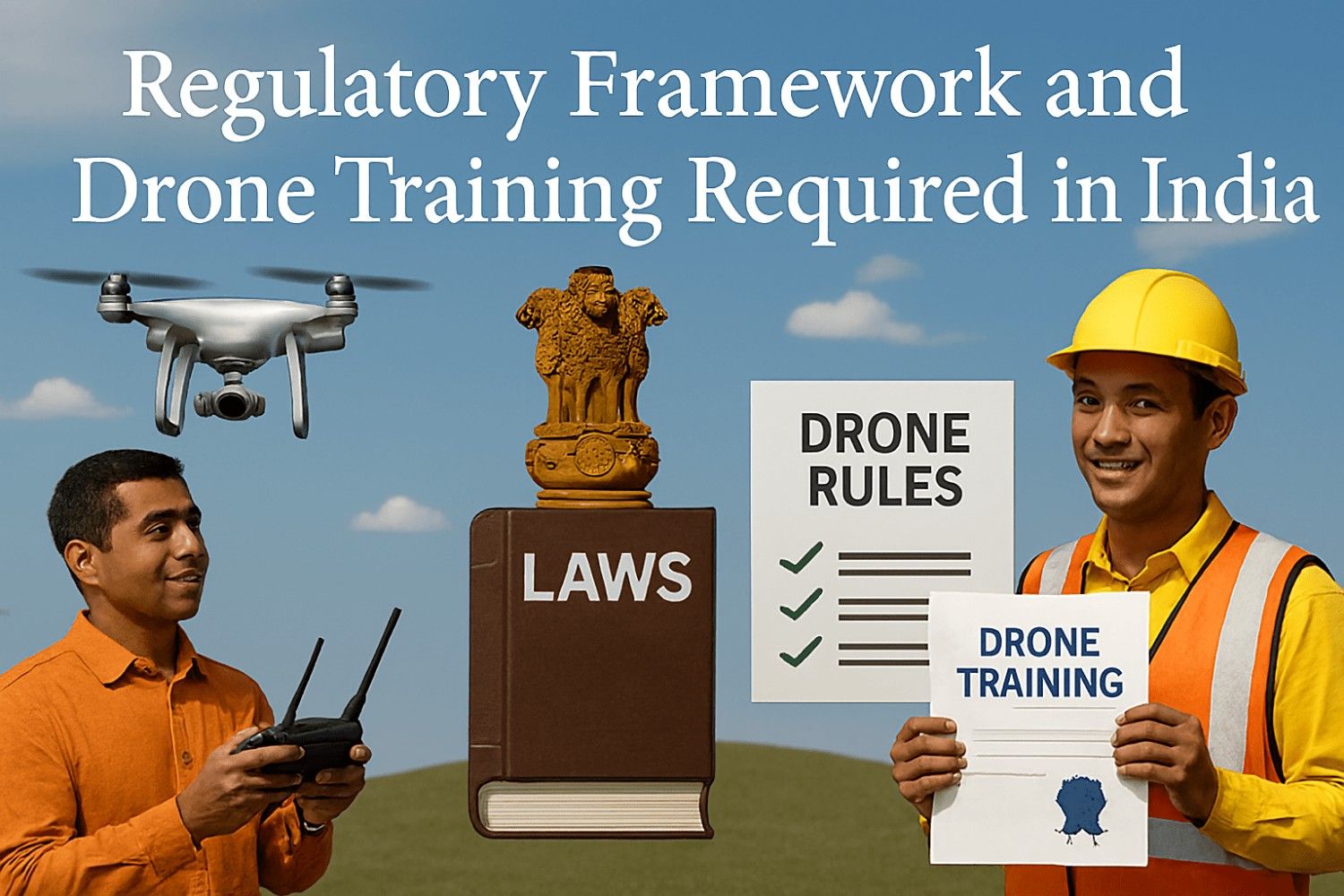
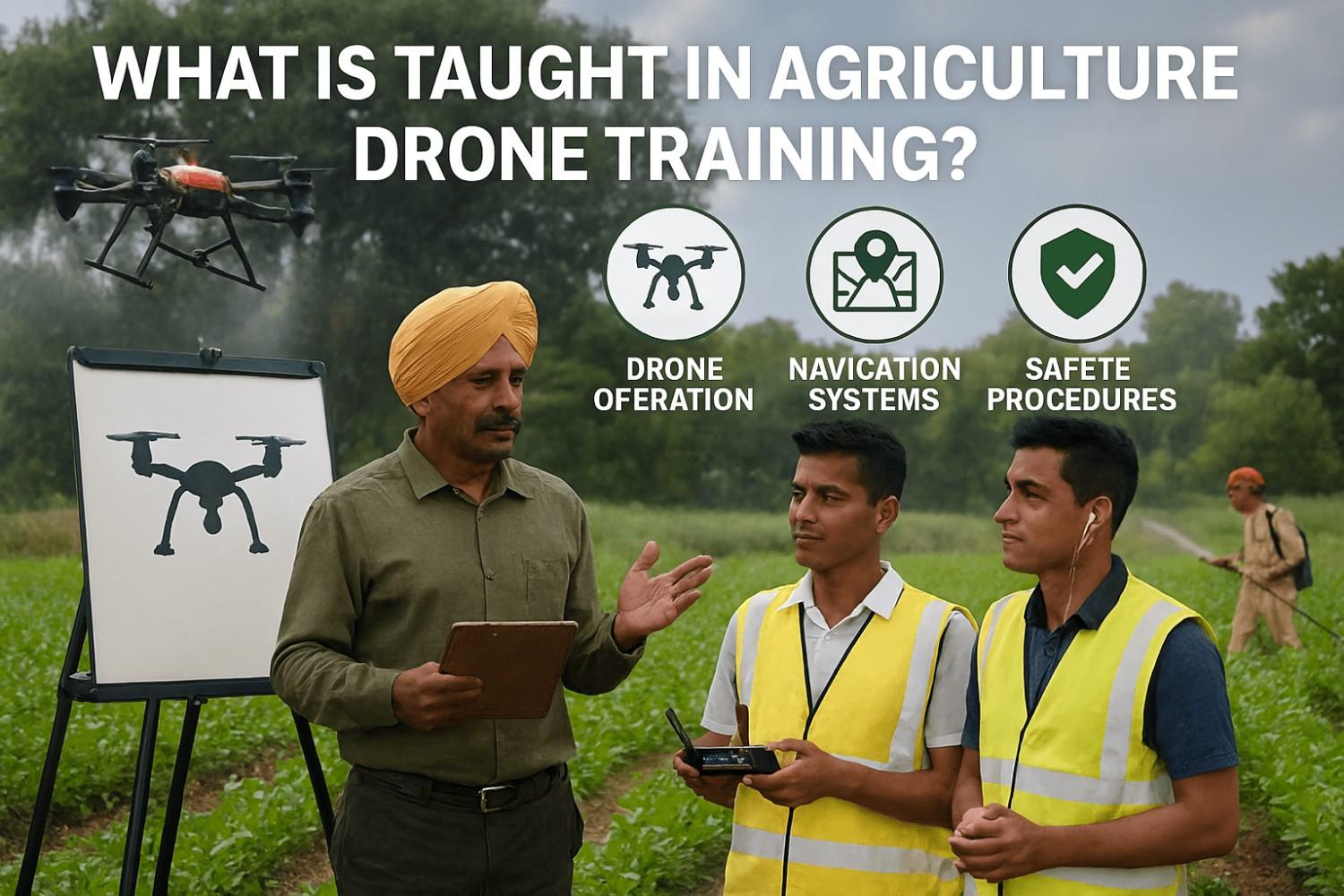
Agriculture drone courses comprise different training modules. People can understand the drone registration and permission process effectively. Apart from this, safety protocols and methods are also taught to cope with emergencies.
Agriculture modules include pesticide and fertilizer spraying techniques, where nozzle settings, drop rates, chemical safety and the proper use of personal protective equipment are taught. Moreover, the course offers information on sensors and data processing.
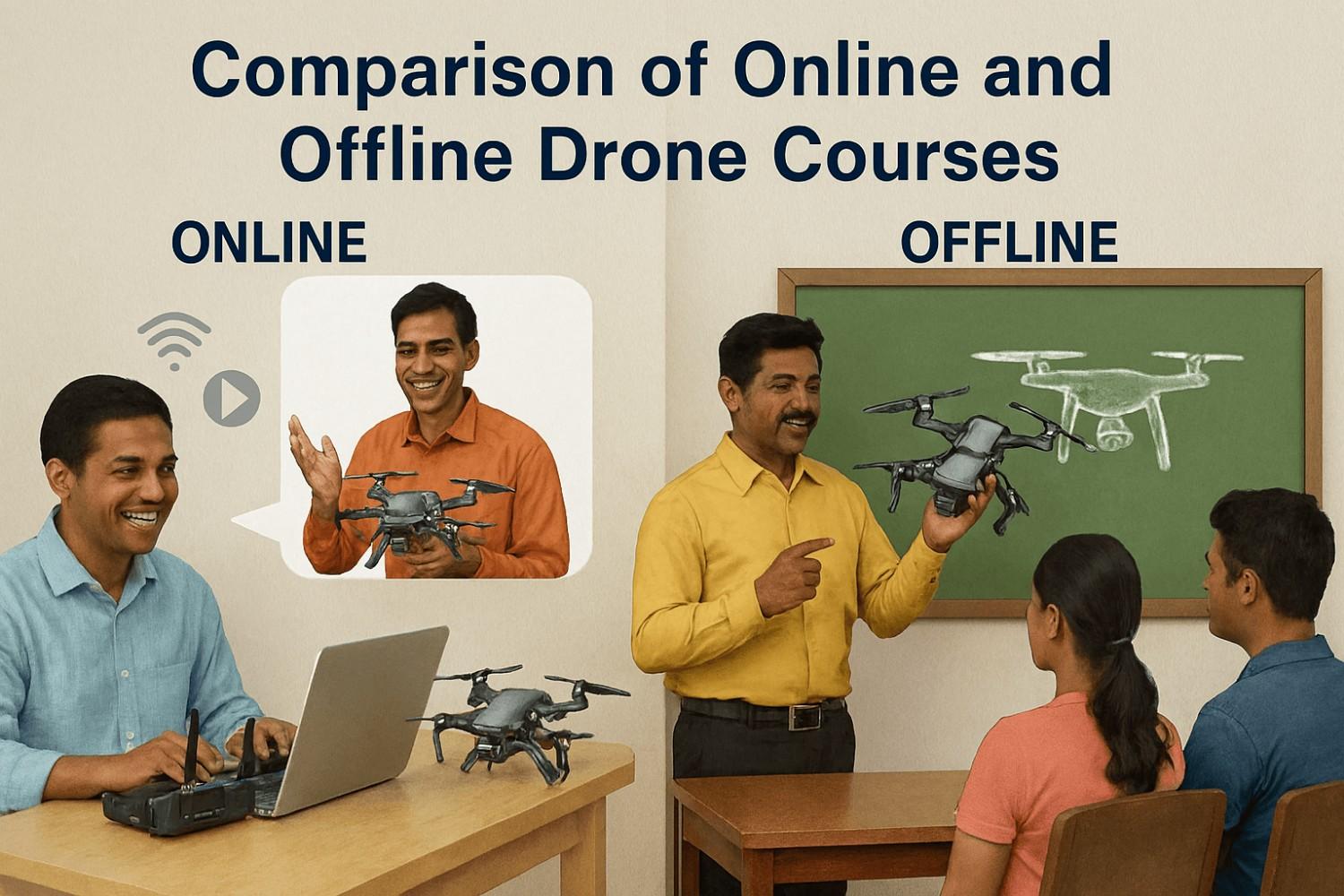
Agricultural drone courses are available online and offline. Online courses are primarily theory-based, with time flexibility, expert lectures from across the country and software-based training. These are useful for those who wish to study while working. However, flight training is not a part of online courses.
As an alternative, offline courses offer practical experience on farms under the supervision of experienced specialists. The advantage is that participants not only learn to fly drones but also gain confidence by performing tasks, such as spraying and collecting data. Though these are comparatively costly. From a practical perspective, the most effective approach is a mix of online theory and practical offline training.
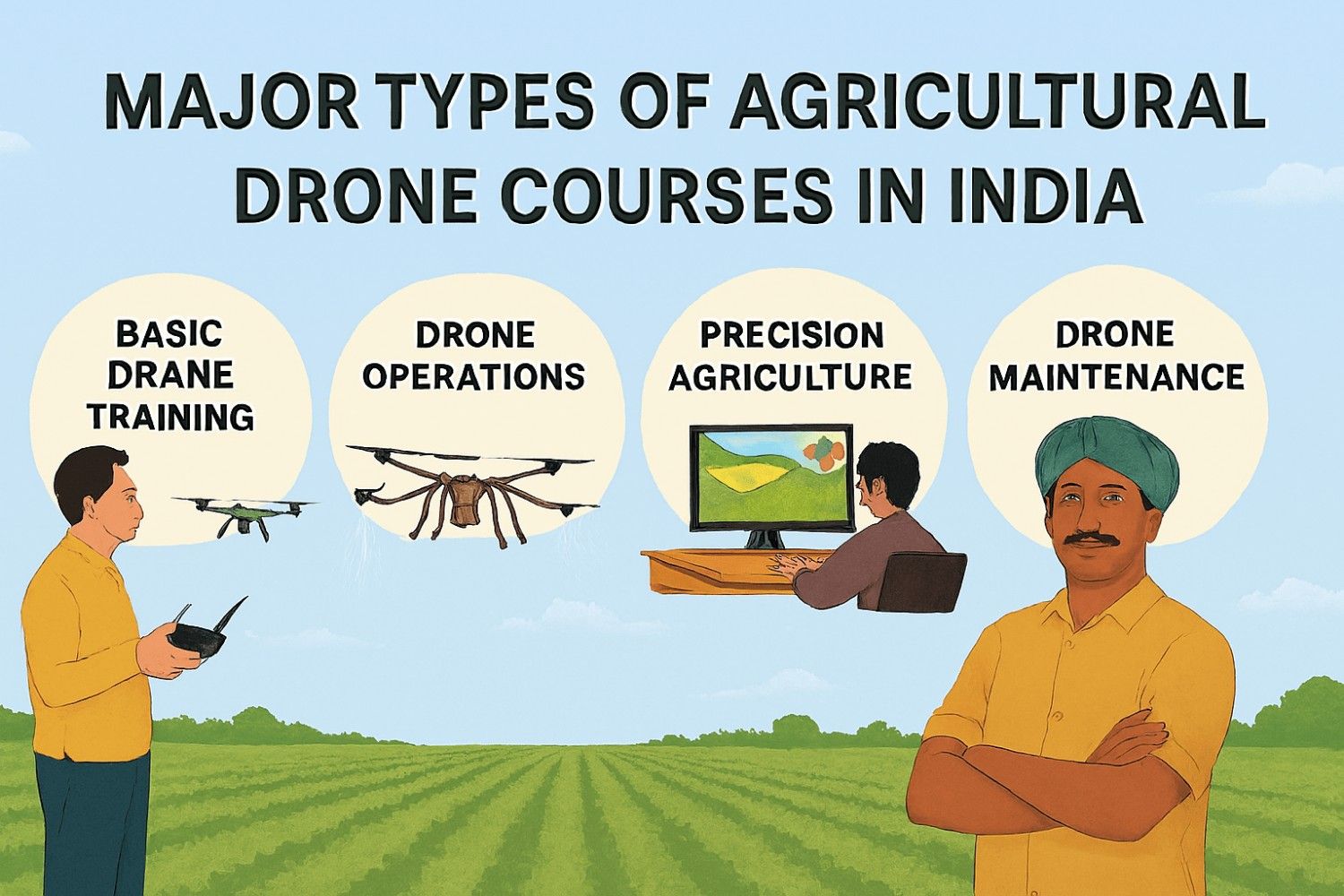
In India, several institutions offer courses with varied structures. First is the DGCA-certified RPC, which lasts 3 to 10 days. It includes protocols, basic aeronautical knowledge, flight practice and emergency procedures.
Furthermore, there are agriculture-specific drone pilot courses, which last one to five days and focus on spray patterns, chemical safety and mission planning. Precision agriculture drone courses typically last from 4 to 12 weeks. They offer thorough knowledge of GIS, NDVI, multispectral data and crop management decisions.
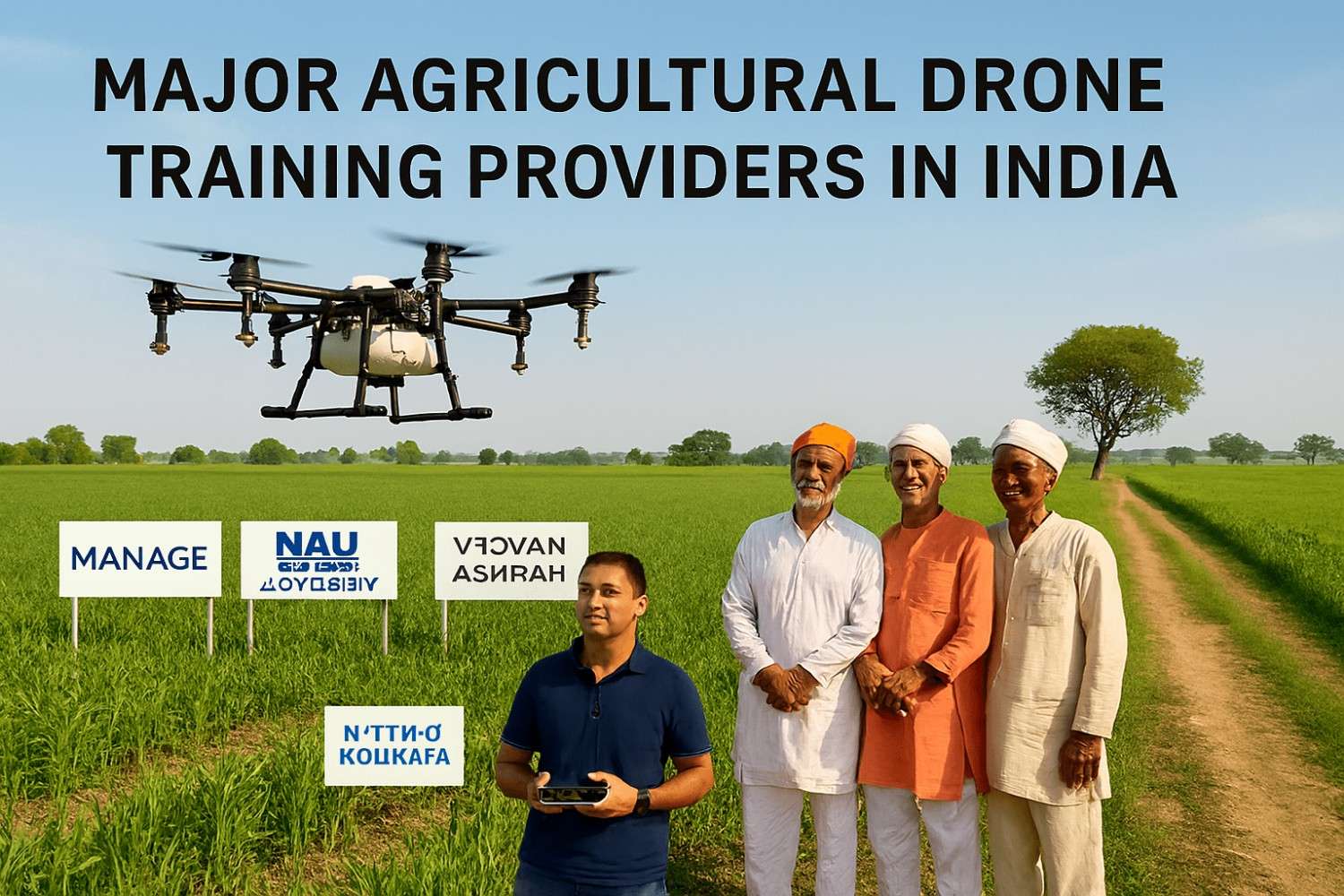
Many private institutes offer agricultural drone training in India. Drone academies have been established in the states of Telangana and Karnataka, providing specialized training to farmers and women's self-help groups. There are private sector drone training institutions, such as Flapone Aviation. These courses are DGCA-certified drone pilot courses and include agriculture-specific modules.
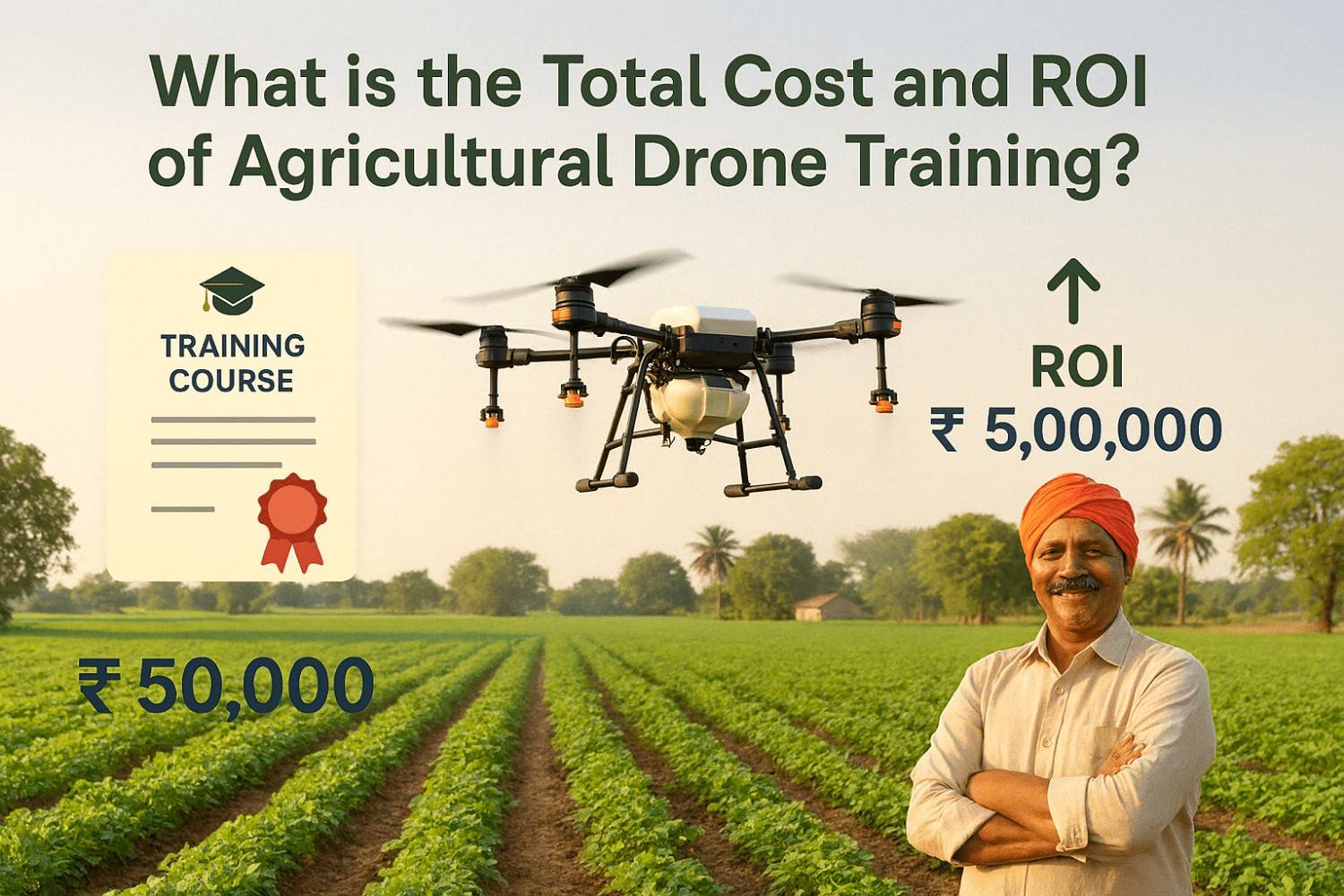
Agriculture drone training costs about 40,000 to 1,00,000. It includes both theory and practical training. Advanced data analytics or dedicated certificate courses are vital. These drones can be more expensive than other kinds of drones.
From an ROI perspective, agricultural drone pilots can generate multiple income sources. Farmers can charge a per-acre spray service fee, offer crop health analysis services and contract with several companies. Many governments and self-help groups have adopted the community drone service model, where the investment is typically recovered within a few months.
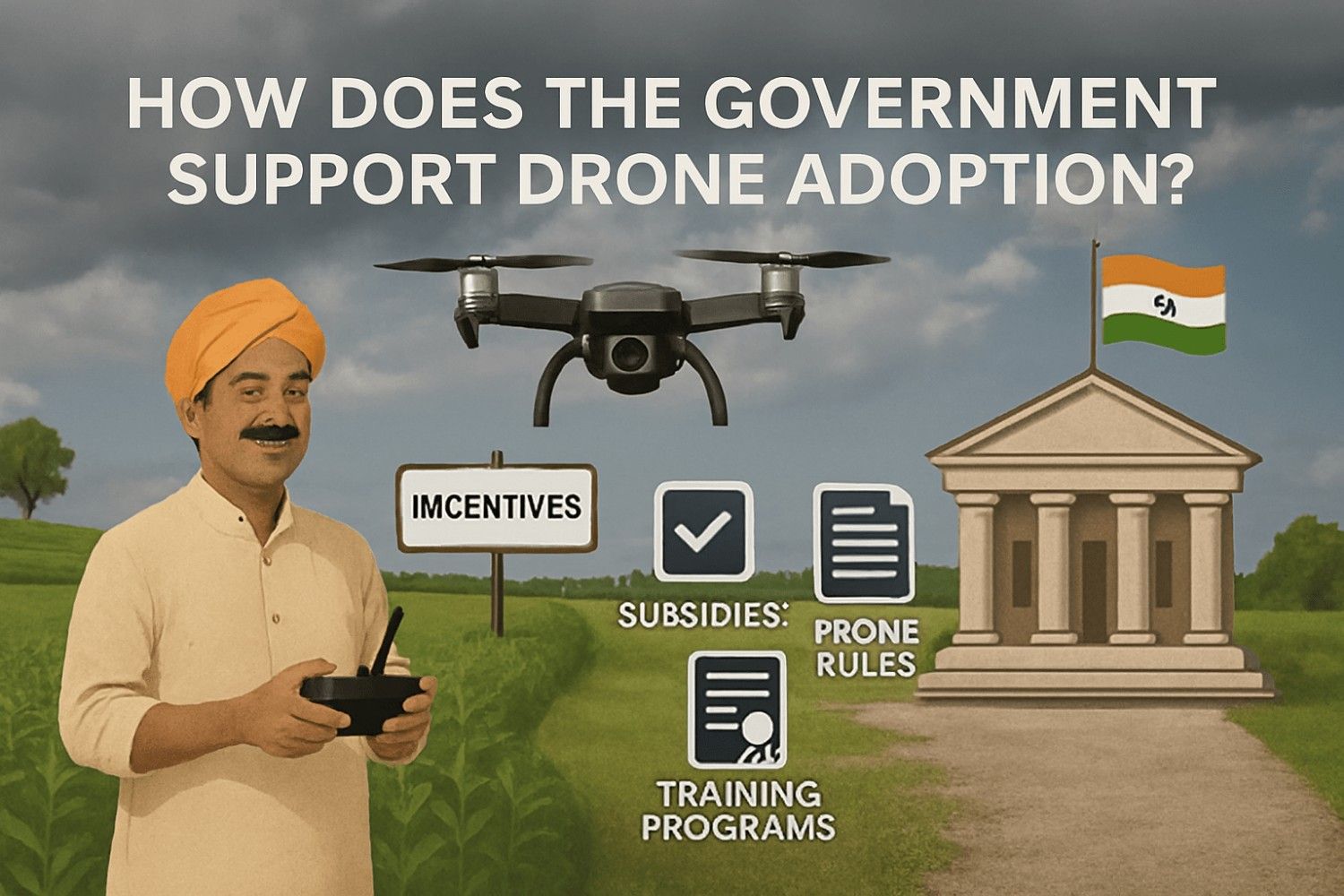
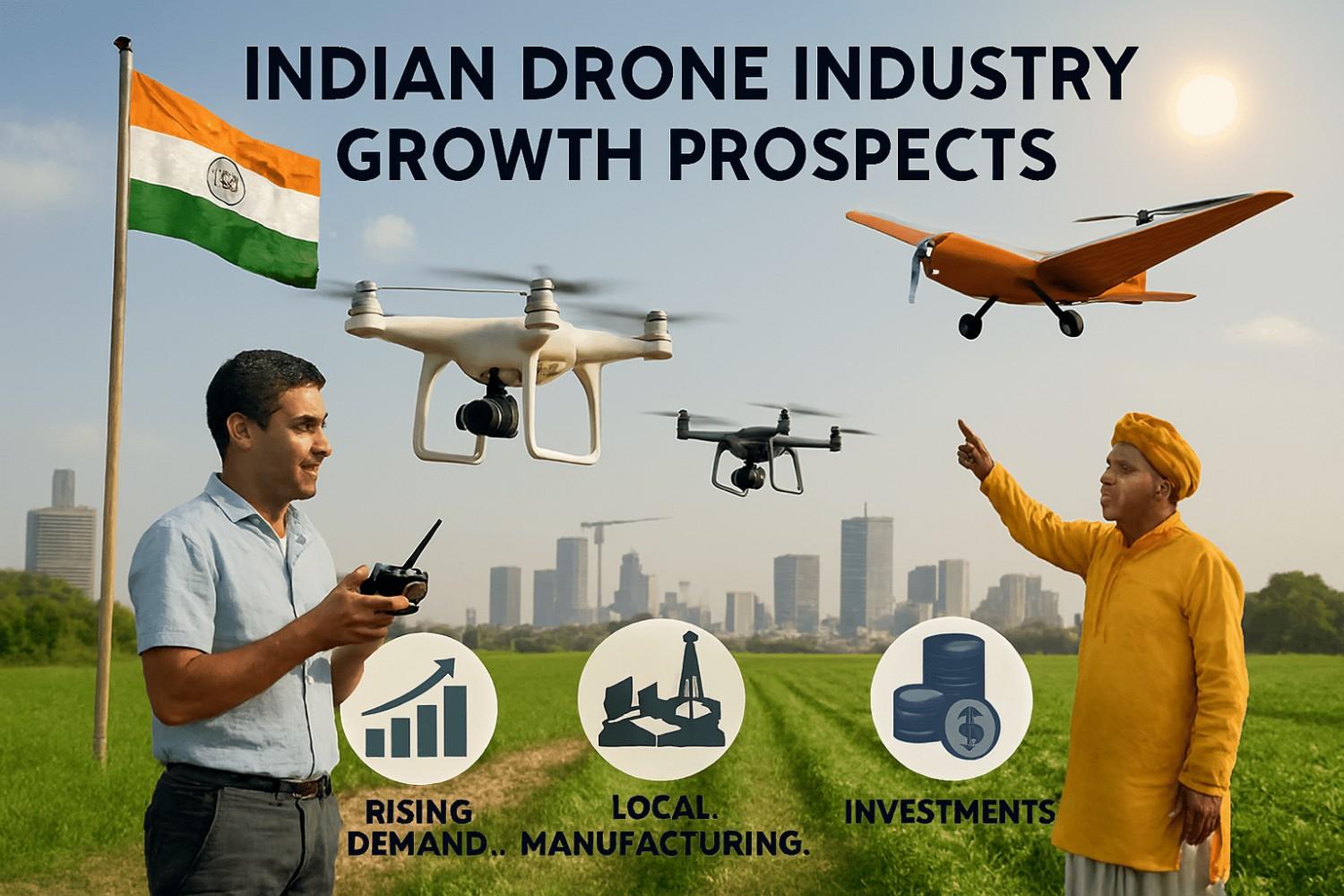
India's agricultural drone industry is experiencing rapid growth. It is expected to grow at approximately a 10% CAGR by the end of this decade. This is due to technological progress, government incentives introduced in the country, and a labour shortage in agriculture. The demand for drone pilots will show a rapid upward growth in the near future.
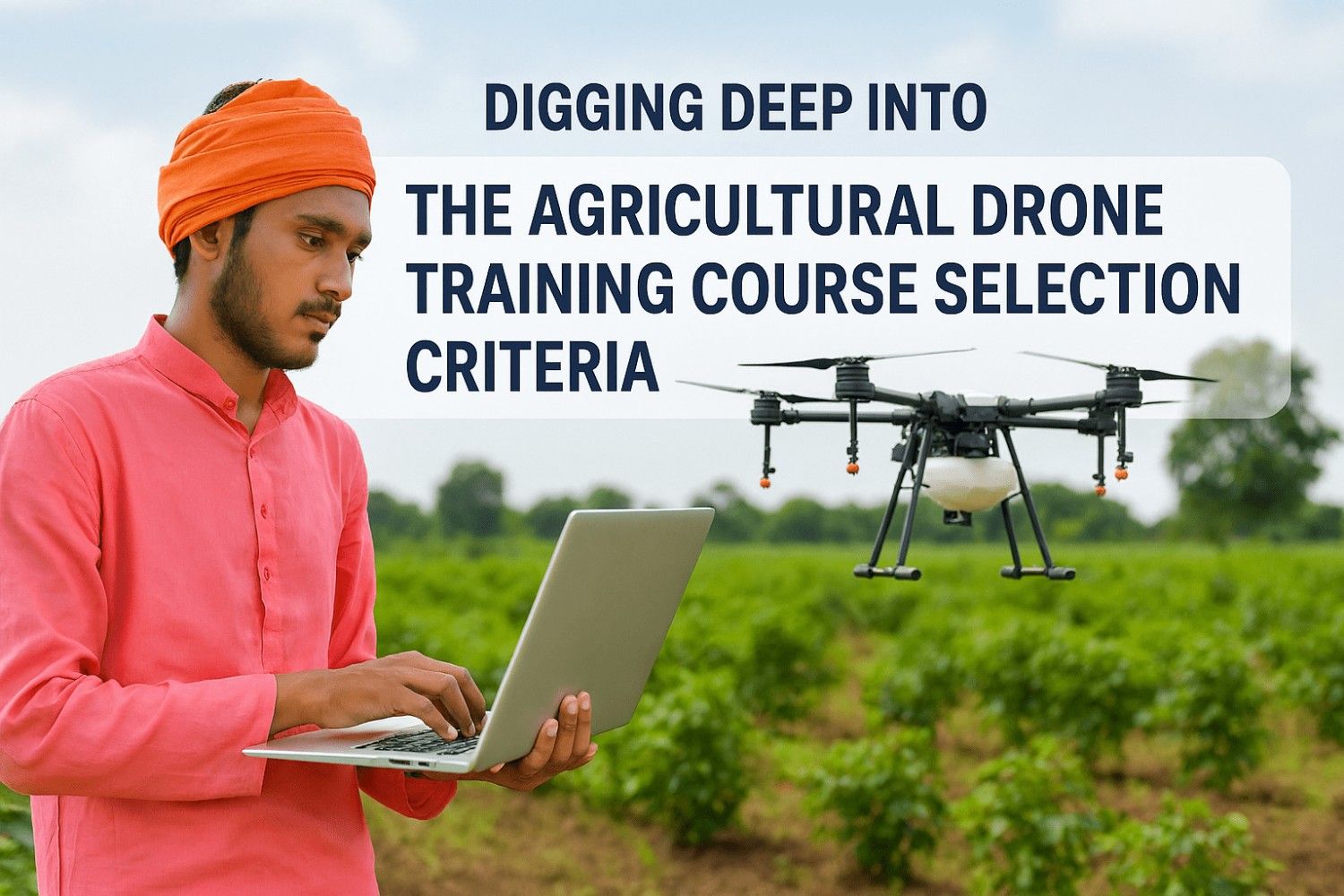
You should consider several key factors while planning to enroll in an agricultural drone training course. Firstly, ensure that the DGCA recognizes the course. Additionally, there should be sufficient practical experience.
The course should have spray techniques and data processing. The experience of the trainers and the equipment available also play a pivotal role in the selection. If the institute offers placement assistance, it will be a big plus.
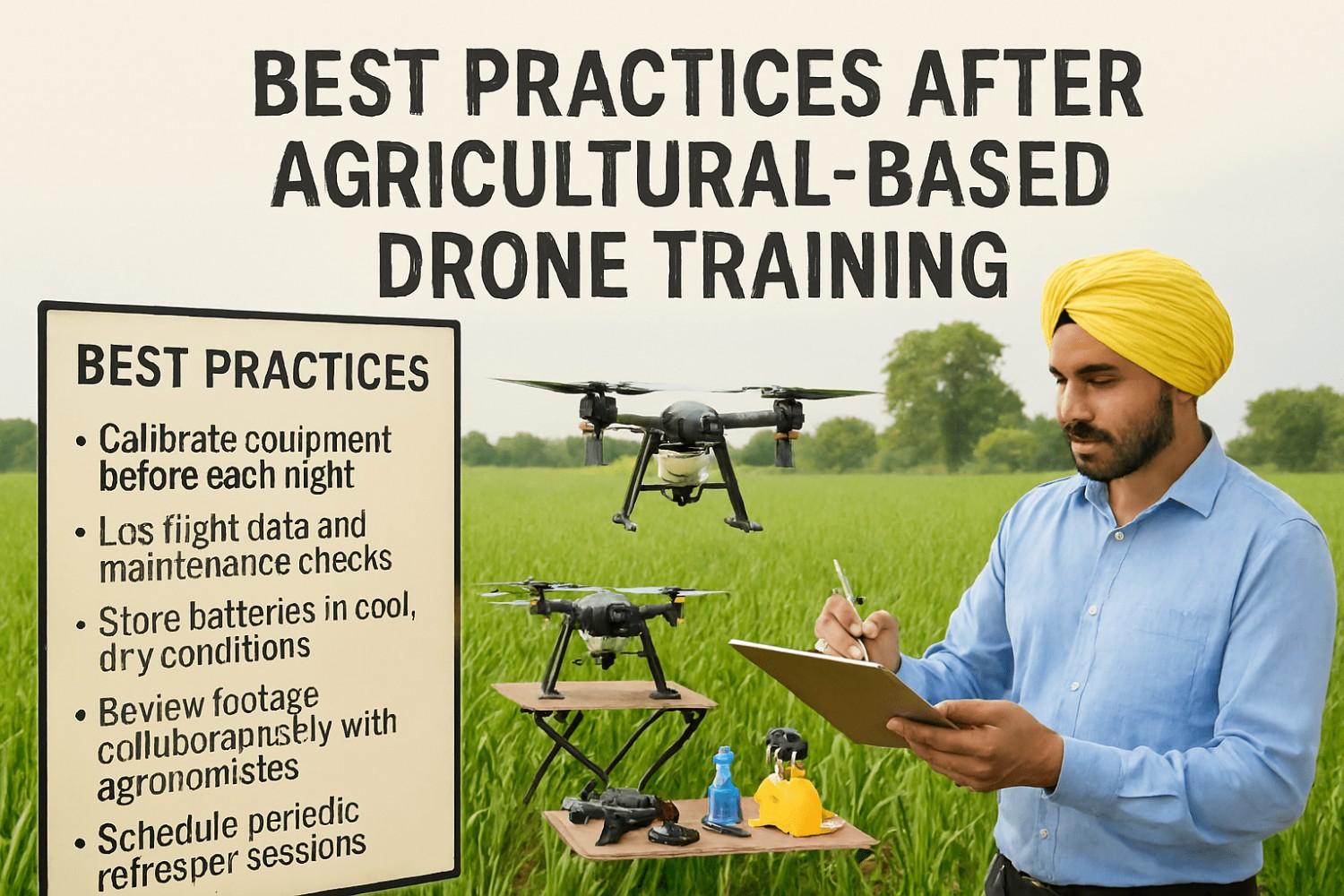
After completing the course, one should not hesitate to participate in a pilot project that allows local farmers to experience the benefits of drones. The cost can be reduced by accepting drone-sharing arrangements through community models or cooperatives.
Additionally, all flights should be undertaken with permission from DigitalSky and adhere to the no-fly zone rules. Providing crop improvement solutions to farmers by offering data-driven advice, rather than just spraying services, is the most effective way to expand the service.
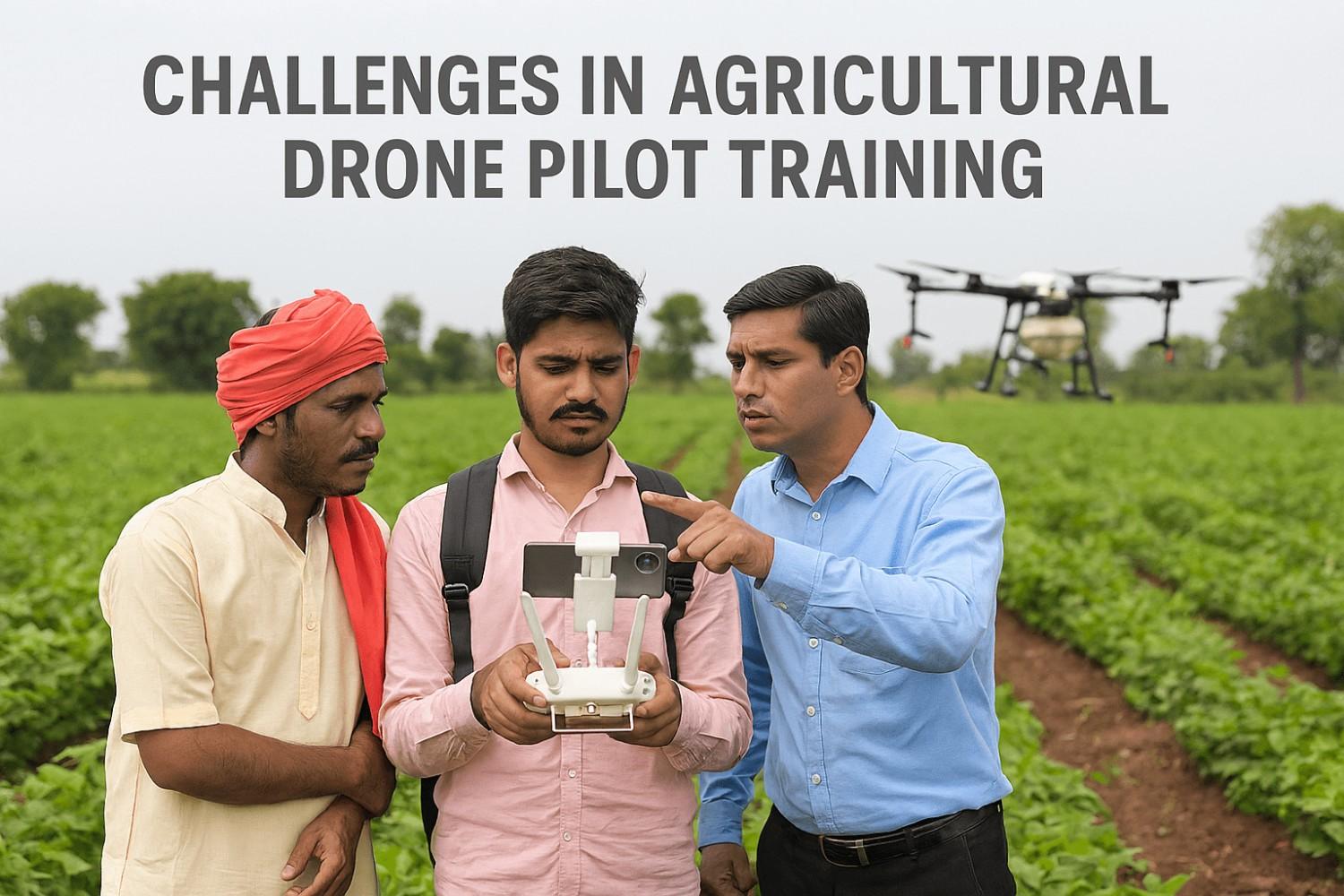
Agricultural drone operations don’t come along without their share of challenges. Regulations regarding this technology are constantly evolving; therefore, it is essential to stay informed. Weather conditions can affect the duration of flights.
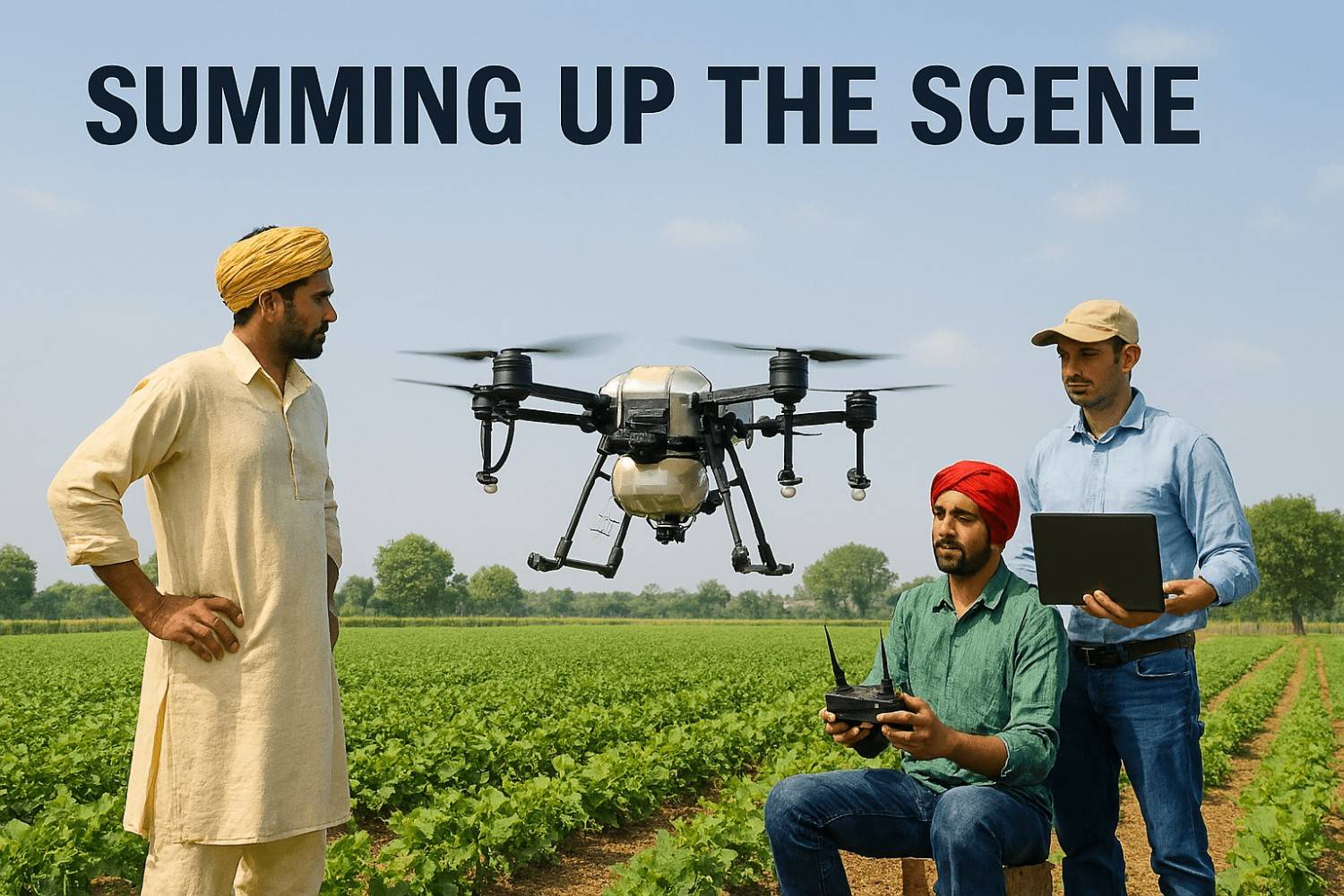
Farming in India can be made lucrative and sustainable with the use of drones. Professional training is the need of the hour. By selecting the right courses, farmers can enhance the competitiveness of Indian agriculture. If you want to become a part of this evolving industry and want to learn drone piloting for commercial purposes, visit Flapone Aviation for the best-in-class training at an unbeatable price.
Whether you're a beginner or looking to upskill, our training advisors can help you choose the right course.